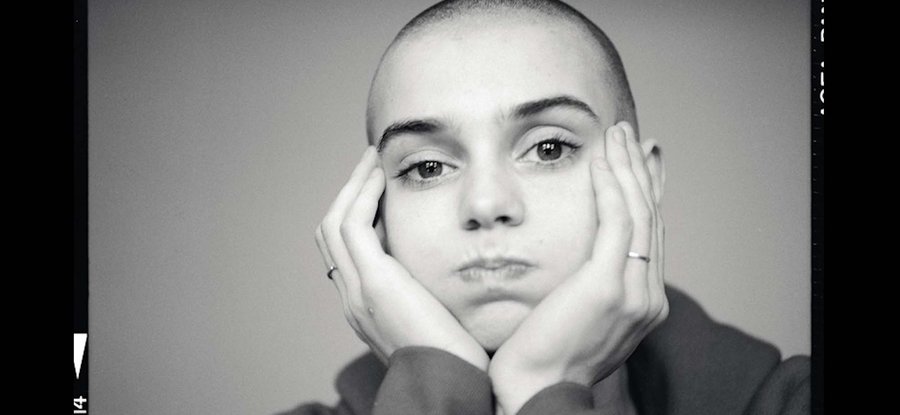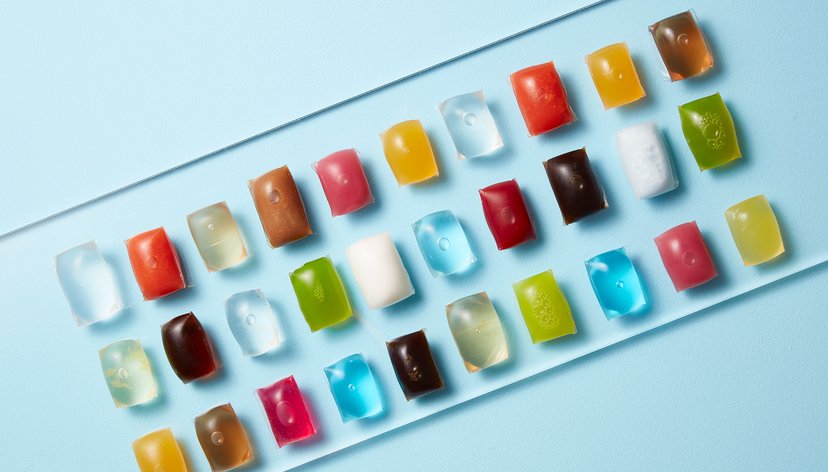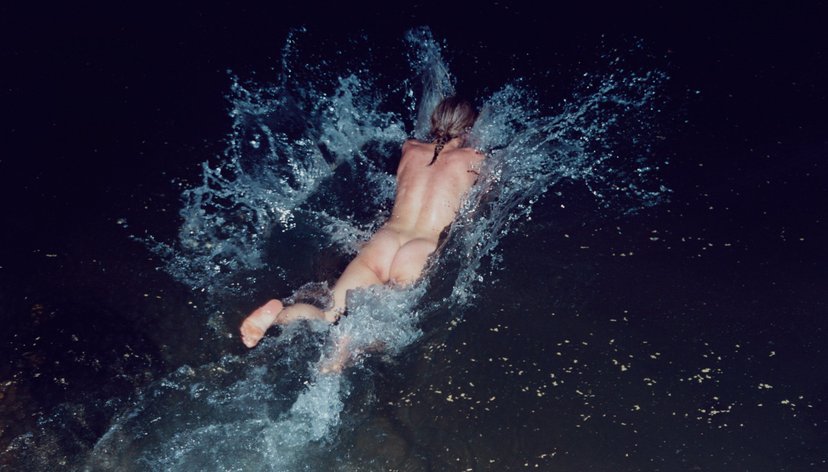
Key details
Date
- 23 October 2023
Author
- Lisa Pierre
Read time
- 6 minutes
Belfast-born Kathryn Ferguson (MA Communication Art & Design, 2011) is an Emmy-nominated, BIFA, and IFTA-winning director, whose innovative and boundary-pushing documentary work has screened globally.
In 2022 she was awarded the inaugural BFI & Chanel Award for Creative Audacity. In 2018, Kathryn's short documentary, Taking the Waters, premiered at Sheffield Doc Fest, and was long-listed for a BAFTA. In 2021, Kathryn worked with Passion Pictures on the short, Space to Be, for The Guardian's acclaimed documentary series.
After a decade of short-form work centred on identity, gender politics, and community, Kathryn recently completed her debut feature documentary, Nothing Compares - which takes as its subject Sinéad O'Connor's artistry and activism. The film premiered at Sundance Film Festival 2022, then toured the international festival circuit, where it picked up multiple awards, before opening in cinemas in October 2022. It has received over thirty award nominations internationally, including Emmy, Critics Choice, IDA, and PGA Awards, and was awarded winner of Best Feature Documentary at BIFA 2022 and IFTA 2023. Nothing Compares is now available to watch on Showtime and Sky. Her first short drama is currently in development.
After a decade of short-form work centred on identity, gender politics, and community, your documentary Nothing Compares - which takes as its subject Sinéad O'Connor's artistry and activism - was your debut feature. Did you anticipate the success it has had when you started out?
Nothing Compares is a film that had been gestating in me for many years. Since its release at Sundance in January 2022 people often describe it as a music documentary and whilst it does of course sit in that genre, to me it’s much more personal than that. Essentially it’s a meditation on grief and I made it to make sense of why this one person had made such a big impact on my own life, why she lit a fire in my belly, and why I also shared her rage. The fact it’s now been seen by so many is a testament to Sinéad. I think it proves that many people around the world had similar feelings to me hence the film's reception.
You said it was a passion project and that you wanted an accurate documentary about one of the boldest and bravest women of the last century. You highlight the victimisation and vilification of Sinéad O'Connor by showing her courage and integrity and she is shown as a thoughtful and eloquent person. Was this the image you wanted to show away from the image created by the press?
Absolutely. So much of Nothing Compares is about trying to right the wrongs that ultimately shaped her career for the past thirty years. It’s a potent example of what happens to powerful women when they put their heads above the parapet and say hard truths that people don’t want to hear. She had spent much of the last thirty years being ridiculed and ‘crazied’ by the media. I wanted Nothing Compares to be a definitive film where she got to tell her side of the story. The timing was everything, I’m not sure if the film had been out any earlier that people would have been ready to engage with it. Since 2018 there’s been such a wave of women speaking out due to Trump, Me Too, Repeal the 8th in Ireland, the turning back of reproductive rights in the US. In early 2022, the audience was primed and ready to listen.

Kathryn Ferguson
“I didn’t consciously choose documentary over drama, I just instinctively and organically moved into documentary filmmaking due to my love of working with real people and helping them share their stories. I am in fact extremely interested in both particularly hybrid documentary filmmaking where you can play with the form and merge both scripted and unscripted elements.”
Director
The film is engaging from the onset. The mix of archive video, music and re-enactment really takes the viewer back to a time and invokes a true sense of nostalgia for those who remember the world events and Sinéad O'Connor sings a soundtrack to their life. Do you hope that this film introduces her to a new audience and highlights how ahead of her time she was through her courage and integrity?
From the offset I wanted to create a visual tapestry of the era we are looking at so that the viewer is fully immersed. I worked with editor Mick Mahon to attempt to create a visual dance between unseen archive footage, newly shot recon, and the iconic music videos - many of whom were originally created by filmmaker John Maybury in the late 80s. We made the creative decision to avoid the use of visual talking heads and instead relied on voice-over interviews. The reason for this is that for an artist like Sinéad whose voice had been so greatly reduced we wanted what she is saying to be the primary takeaway from the film. The film has introduced Sinéad to a younger generation which was one of our greatest hopes when we started. We wanted the film to remind them of the power of using their voices and speaking out.
Growing up as a catholic in Belfast, how much of the social conditions mentioned in the documentary affected your own life?
I don’t think anyone grew up without being affected. Even on a subconscious level, stigma, shame, and guilt permeated through most of society in the North and the South. It was having figures like Sinéad that guided us through that era. She lit a torch for so many of us. Her actions in the 80s and 90s definitely added to and inspired the generation that has been actively changing Ireland for the better.

The subject of the 8th Amendment links into your own creative history with your film for Amnesty International ‘25 Annoying Things’. Do you feel that the 2018 repeal showed a fundamental shift in the culture inside Ireland?
Yes but a significant shift was growing before the mobilisation of the Repeal the 8th movement. Aside from the country distancing itself from the grip of Catholicism, Ireland was the first country to approve same-sex marriage by popular vote in 2015 with huge crowds showing up to support the LGBTQ+ community and in 2013 Irish Prime Minister Enda Kenny formally apologised on behalf of the state for its role in the Magdalene laundries.
You spent several years working as Selfridge's Resident Film Director where you directed most of the moving image content for the brand. Creatively did this offer you more fun and freedom as a filmmaker?
I loved working with the Selfridges team for the five years I was there. They are a phenomenal team of creatives and they gave me huge amounts of creative freedom. It was this freedom that helped me to work out my voice as a filmmaker and hone in on what was important to me.
Why did you choose to focus on documentary filmmaking over drama?
I didn’t consciously choose documentary over drama, I just instinctively and organically moved into documentary filmmaking due to my love of working with real people and helping them share their stories. I am in fact extremely interested in both, particularly hybrid documentary filmmaking where you can play with the form and merge both scripted and unscripted elements. I am about to embark on my first short drama based on a Belfast writer's book of short stories. I’m driven by the story and not the genre specifically, so I’m intrigued to see what happens next.
Most of your work is about women and various narratives. Do you feel that you will continue to highlight the female journey?
Telling untold stories is, I think, what drives me the most, or stories that need to be revised through a contemporary lens. What has hit me recently is the direct link between my RCA final project, a short film called Mathair (Irish for Mother) and Nothing Compares. My interest in female narratives, particularly from my own country, began whilst I was a student. I decided to make Mathair as an experimental film that starts to hone in on many of the themes we deep dive into in Nothing Compares, particularly Catholicism and its effect on the women of Ireland. It was whilst making that short that I first reached out to Sinead’s team and rather cheekily asked if I could get access to her music for the film’s score. Amazingly her team agreed. I then sent them back the finished graduation film and a year later heard back from them asking if I would direct her first music video in 15 years, for her song 4th & Vine. It was through the making of this music video that I got to meet Sinéad for the first time and this reminded me of all the potent feelings she’d created in me as a young Irish woman. It was this meeting that spurred me to want to make a documentary about her and her legacy. It just kind of blows my mind how organic the whole thing was and that its early beginnings were during those transformative years at the RCA.
You have highlighted various subject matters such as beauty, gender, sisterhood, empowerment, the concept of luxury, Ireland and religion. What is something that you would like to make a film about in the future?
Goodness, that’s a lot of themes when you put it like that! But you know what’s interesting, the film I’m currently developing is actually a bit of a melting pot of all of those ideas. It’s going to look at the intersection of Irish folklore, mental health, and the sublime, so I guess the same interests keep returning.


